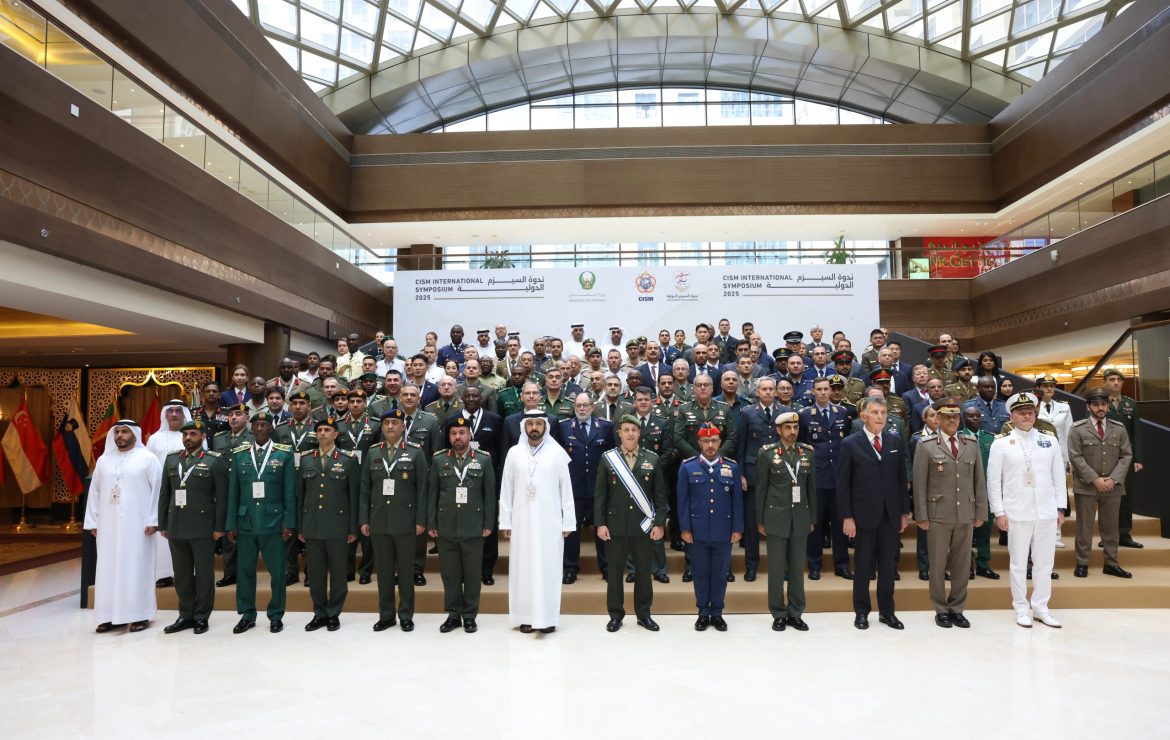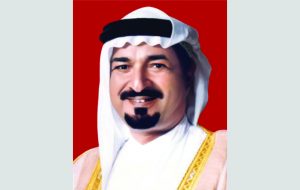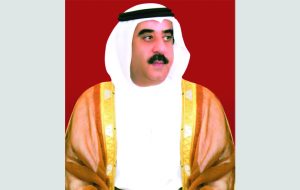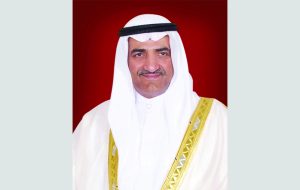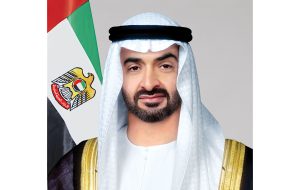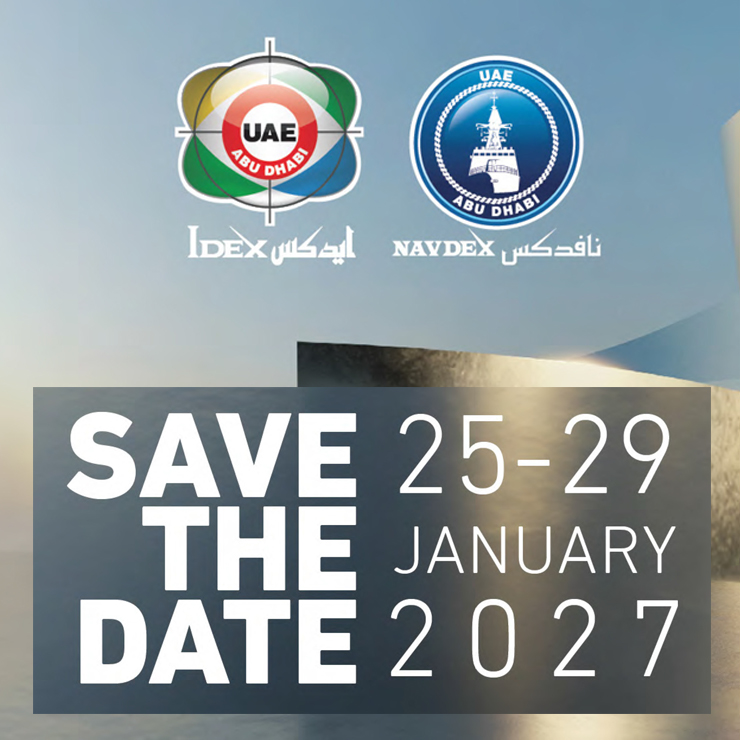The International Military Sports Council (CISM) Scientific Symposium 2025 concluded its sessions on 22 October in Abu Dhabi. Organised by the Ministry of Defence under the patronage of H.H. Sheikh Hamdan bin Mohammed bin Rashid Al Maktoum, Crown Prince of Dubai, Deputy Prime Minister and Minister of Defence, the three-day event was held under the theme: “Physical Readiness and Resilience in the Armed Forces: Challenges and Foreseeing the Future.”
The closing ceremony was attended by Lt. Gen. Ibrahim Nasser Al Alawi, Undersecretary of the Ministry of Defence, along with Maj. Gen. Khalifa Rashid Al Hamli, Director of the Office of H.H. the Minister of Defence; Maj. Gen. Obaid Ali Al Mansoori, Chairman of the CISM 2025 Organising Committee; Colonel Nilton Gomes Filho, President of CISM; Maj. Gen. Rashid Al Dosari, CISM Vice President for Asia; Staff Brigadier General Ayoob Al Falasi, Head of the UAE Delegation to CISM; and Colonel Roberto Recchia, CISM Secretary General, in addition to CISM board members, participating delegations and speakers.
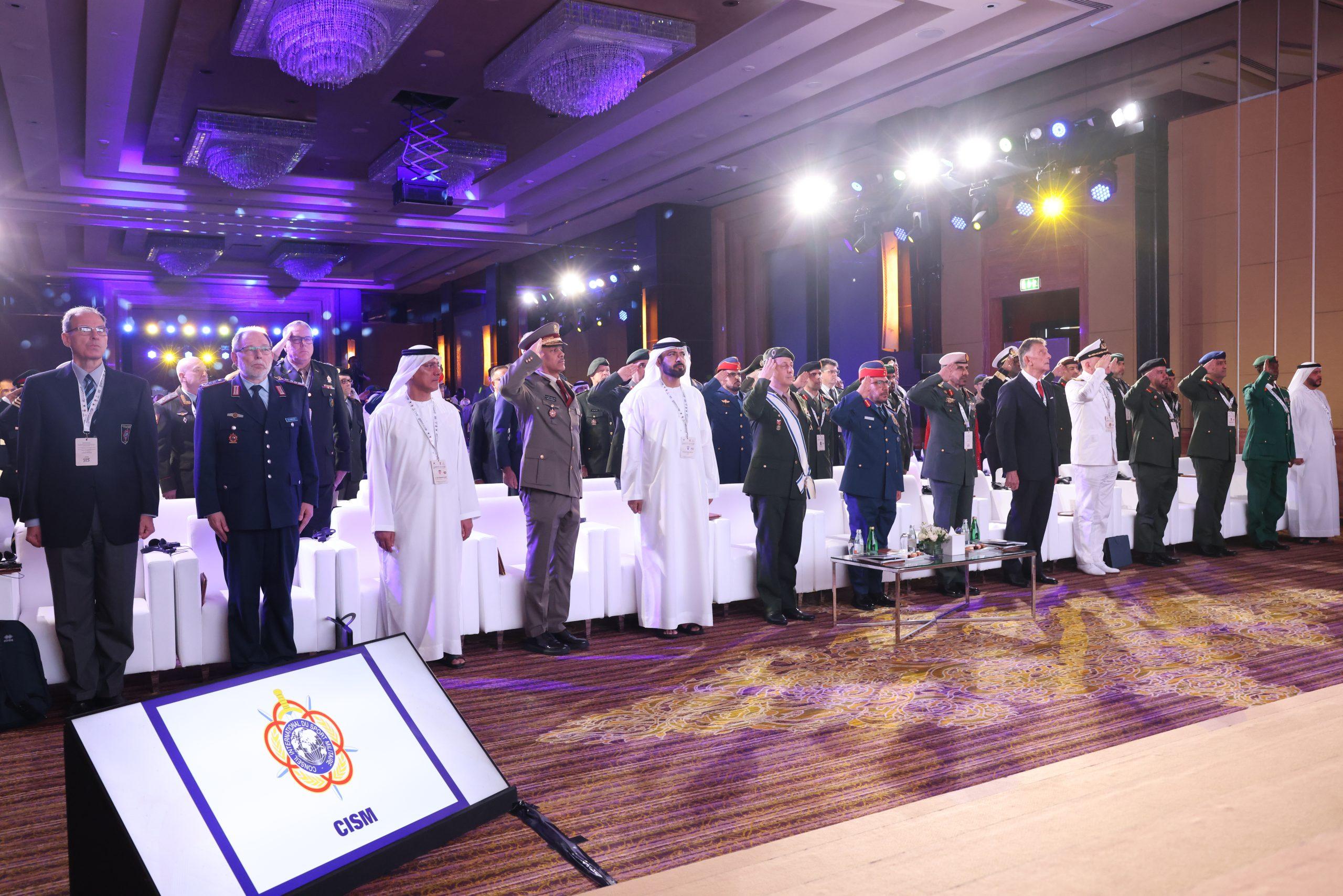
Held for the first time in the Middle East, this edition reflected the UAE’s growing role in advancing defence knowledge, military sports science, and international cooperation. The symposium brought together more than 130 participants and 43 speakers from 35 countries, showcasing a rich scientific diversity across modern military training trends, human performance sciences, keynote lectures, panel sessions, and specialised workshops.
UAE’s Commitment to Research and Dialogue
Maj. Gen. Obaid Ali Al Mansoori, Chairman of the Organising Committee, said:
“The symposium embodied the visionary leadership of the UAE in integrating knowledge, collaboration, and innovation to enhance the future of military readiness. Hosting this global event reflects the UAE’s steadfast commitment to supporting scientific research, constructive dialogue, and the building of international partnerships through sport and science.”
The successful organisation of the symposium reinforced the UAE’s leading position in hosting global scientific and defence events. It highlighted the country’s ability to bridge military sports sciences, health innovation, and applied research to promote readiness, safety, and well-being among armed forces worldwide. As the event concluded in Abu Dhabi—where science, security, and diplomacy intersect—CISM 2025 left a legacy of sustainable cooperation, further strengthening the UAE’s role in shaping the future of military preparedness and global peace through sport.
A Milestone in Academic and Military Collaboration
Staff Brigadier General Ayoob Al Falasi, Head of the UAE Delegation to CISM, delivered the Ministry of Defence’s address, stating that hosting this global symposium under the patronage of H.H. Sheikh Hamdan bin Mohammed marks a significant scientific milestone.
He lauded the rich discussions and innovative ideas that advanced academic and military collaboration among CISM member states.
Pointing out that this event represents a major step toward enhancing future-oriented military sports activities that meet modern requirements and reflect the UAE’s message of leadership, peace, innovation, and excellence.
He added that the symposium is a source of national pride, underscoring the UAE’s continued commitment to strengthening its global standing—not only through academic contributions but also through the exchange of expertise and knowledge to develop modern scientific approaches that enhance the readiness and efficiency of the armed forces.
Moreover, he affirmed that the specialised research and exchange of expertise presented during the symposium reflect the depth of the shared commitment to improving military and sports performance, adopting best practices that enhance individual readiness and support the sustainability of their capabilities in facing future challenges.
Al Falasi extended his gratitude to CISM, the Ministry of Defence teams, participating delegations, and researchers for their contributions in advancing global military sports thinking and embodying the CISM motto, “Friendship Through Sport.”
Honouring Strategic Partners
During the ceremony, Lt. Gen. Ibrahim Nasser Al Alawi honoured key partners and sponsors whose efforts contributed to the success of the symposium. These included EDGE Group, Tawazun Council, Etihad Airways, Khalifa University, Palms Sports, the UAE Archery Federation, and CISM President Colonel Nilton Gomes Filho.
Raoul Mollet Award for Military Sports Science
The symposium also presented the prestigious “Commander Raoul Mollet Award for Sports Sciences” from the CISM Academy to Associate Professor Arto Grasten of the Department of Physical Education, UAE University. The award was handed over by Colonel Roberto Riccia in recognition of his distinguished research in military sports and physical fitness sciences. This award is one of the most esteemed international awards that promotes scientific excellence aligned with CISM’s mission and encourages high-level academic research and military-academic cooperation worldwide.
Flag Handover to Brazil
In the final segment of the ceremony, Staff Brigadier General Ayoob Buti Al Falasi handed the CISM flag to CISM President Colonel Nilton Gomes Filho, marking the successful conclusion of the UAE’s hosting of the CISM International Symposium 2025. The flag was then passed to Maj. Gen. Pilot Paulo de Melo, Head of the Brazilian Delegation, as Brazil prepares to host the next CISM International Symposium in two years.
Global Praise for the UAE’s Hosting Efforts
The leadership of CISM, senior officials, participating delegations, speakers, and experts expressed their deep appreciation for the UAE’s exceptional organisation and meticulous preparations for the CISM 2025 International Symposium. They commended the UAE for providing an ideal platform for dialogue, knowledge exchange, and collaboration among representatives of member states, reflecting its leading role in hosting international events and enhancing military and humanitarian cooperation worldwide.
Key Recommendations and New Frameworks
Over the course of three days, the symposium produced a number of substantive outcomes. These included strengthening cooperation among member states in the fields of human performance and resilience research, and enhancing collaboration between civilian academic institutions and military research centres—opening the door to new strategic partnerships. The symposium also reaffirmed the UAE’s position as a regional hub for scientific and defence innovation.
New frameworks were introduced for integrating artificial intelligence, biometric sensors, and psychological preparation into modern military readiness programmes. The outcomes further emphasised support for CISM’s core mission of promoting “Friendship Through Sport,” by uniting scientists, officers, and researchers around a shared goal of advancing peace and cooperation through scientific progress.
Advances in Diagnosis and Rehabilitation
The final day began with a keynote address by Lieutenant General Dr Evgeny Kryukov, President of the Russian Ministry of Defence’s Military Medical Academy. He discussed specialised sports-related injuries and rehabilitation procedures, presenting the latest diagnostic and recovery protocols adopted by military medical institutions to ensure long-term readiness.
The keynote sessions concluded with a lecture by Professor Renner Marson from the University of São Paulo on the use of biometric sensors and artificial intelligence in military readiness, highlighting the future of human performance monitoring through smart analytics and digital health technologies.
Integrated Readiness System
Subsequent scientific sessions featured advanced presentations on the multidimensional readiness system, spanning physical rehabilitation to mental health. Russian university researchers presented studies on adaptive physical education and training in cold environments, while Emirati researcher Farah Al Zaabi delivered a study on chronic pain prevention to support military readiness.
Thuraya Belhaj from the UAE Armed Forces explored the impact of psychological readiness on operational performance. Researchers from Romania, the United Kingdom, and Australia shared studies on mental resilience, mindfulness practices, and cognitive awareness in military settings.
Anticipating Future Challenges
Researchers from the UAE and Finland also examined motivational models and behavioural change among youth preparing for military service. From the UAE Ministry of Defence, researcher Salem Al Kaabi presented a paper titled “Physical Readiness and Resilience in the Armed Forces: Challenges and Foreseeing the Future,” reflecting the symposium’s forward-looking approach to shaping the soldier of the future.
In the session on physiological readiness and technology, Dr Hisham Aref Al Sayed from the UAE delivered a scientific review on tactical readiness in elite units. Meanwhile, researchers from the Brazilian Air Force presented studies on wearable technologies used to monitor hydration, regulate body temperature, and enhance physical performance in hot climates.
The sessions concluded by reaffirming the multidisciplinary nature of the symposium, which brought together medicine, physiology, psychology, and technology as essential pillars in developing future military capabilities.
“Grand Officer Medal”
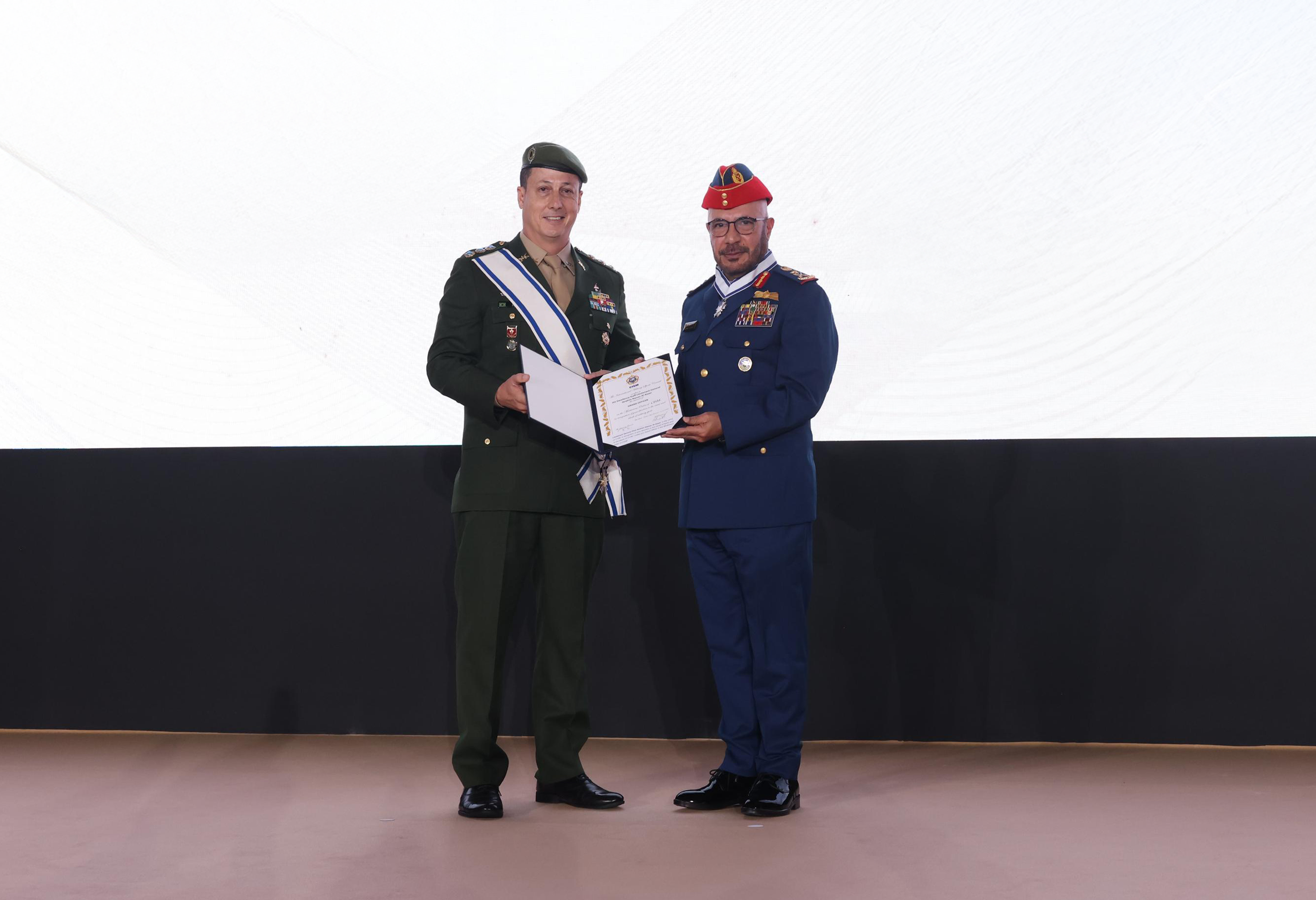
At the opening of the symposium, the President of the International Military Sports Council awarded the “Grand Officer Medal” to Lt. Gen. Ibrahim Nasser Al Alawi, Undersecretary of the Ministry of Defence, and Maj. Gen. Khalifa Rashid Al Hamli, Director of the Office of H.H. the Minister of Defence. The honour was presented in recognition of their outstanding efforts and continued support for CISM activities.
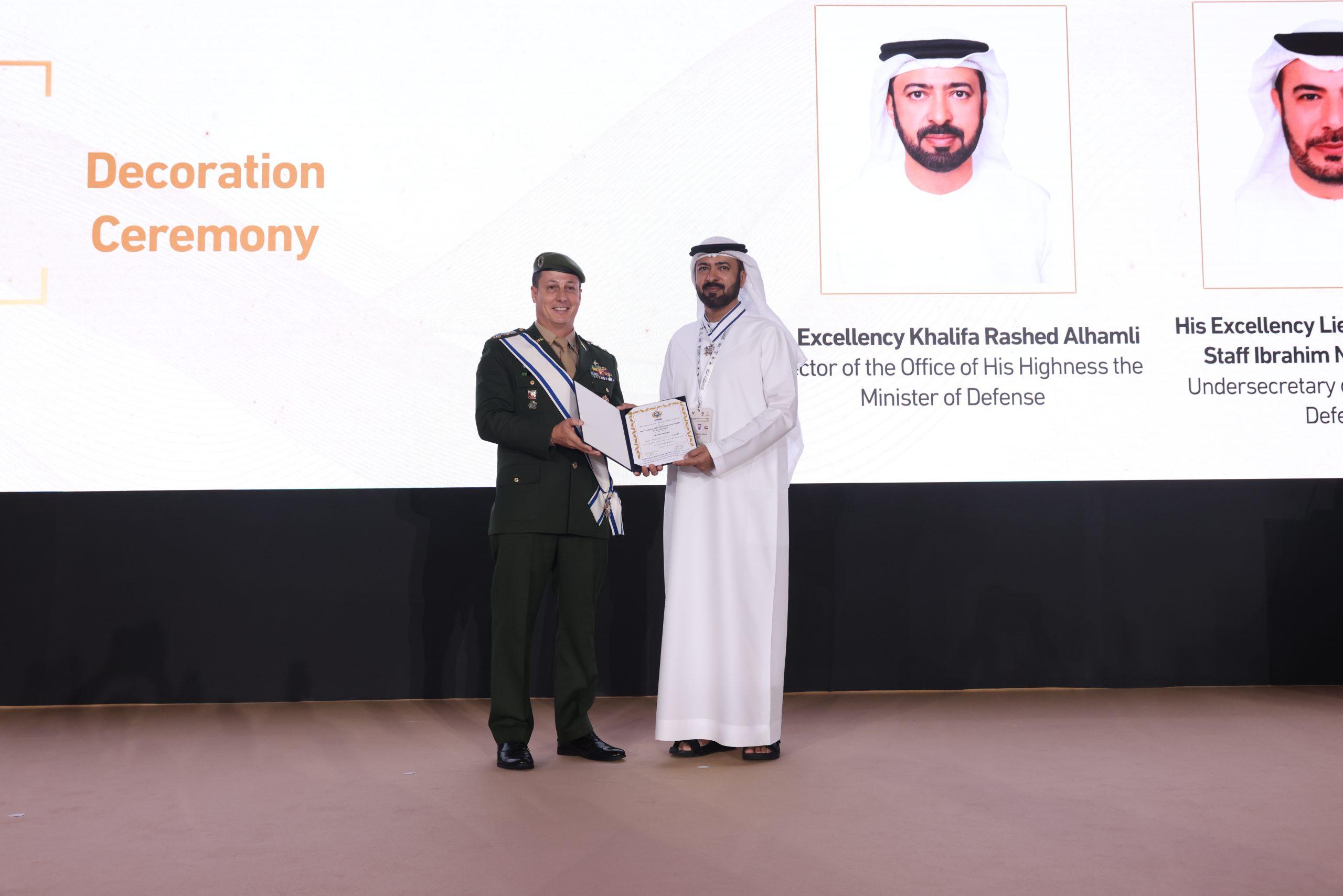
Coverage by: Razi Izzeddin Elhadmi | Photography by: Omar Abdulla Alshehhi


